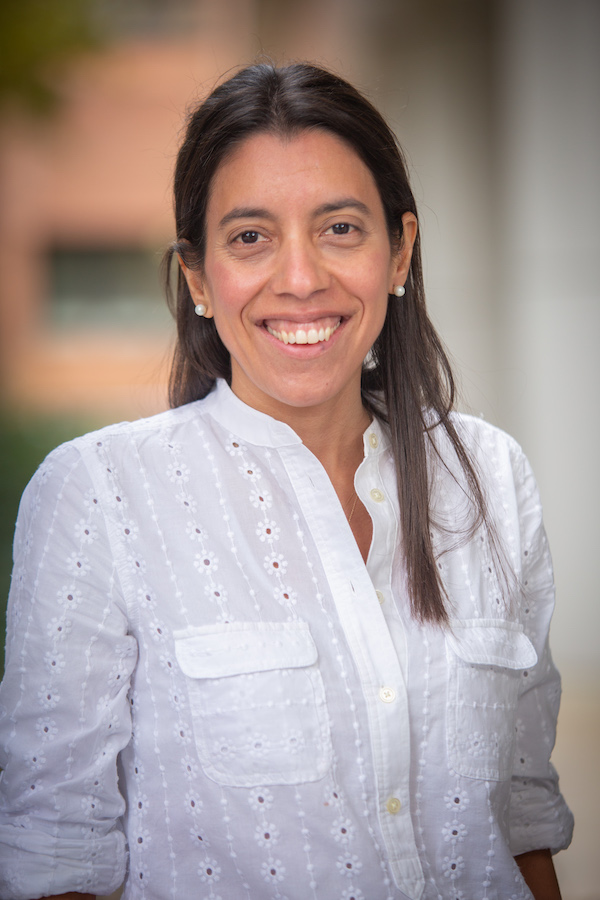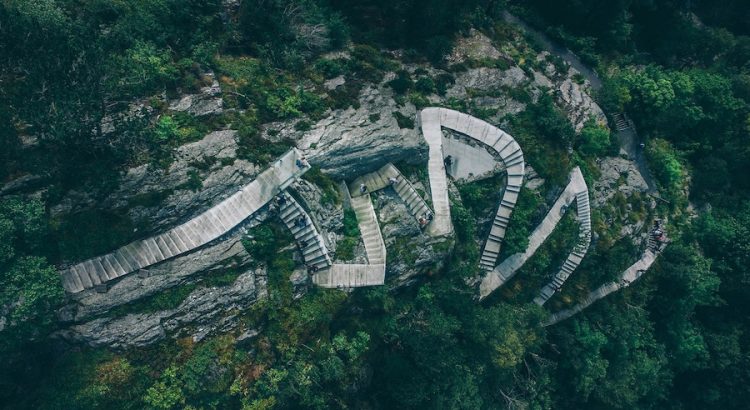Podcast: Play in new window | Download
Subscribe: Spotify | Email | TuneIn | RSS
Dr. Jimena Giudice has all the traits of a promising new faculty member.
Through her training and early career, she has earned more than a dozen grants and awards. She’s co-authored two dozen papers. And she has trained students and postdocs, gaining a reputation as a highly effective mentor.
You’d expect that Dr. Giudice’s undeniable success was the natural result of an early immersion in science and a dogged adherence to the well-worn path through college, grad school, and postdoc.
But of course, you’d be wrong. Before discovering a love for scientific research, Dr. Giudice spent ten years answering a different calling.
Changing Focus

Growing up in Argentina, Jimena didn’t know that her eventual career in science was even an option.
“My parents are architects, my sister is an architect, my cousins are architects, uncles are architects or graphic designers. So I really didn’t have anyone close that I could imagine you could do science as a career,” she recalls.
So after high school, she enrolled in college to study industrial engineering.
Four years into a six year degree, she put her studies on hold and made a personal decision.
“I changed my path, and that’s when I started considering being a nun. I entered a congregation when I was 21.”
Jimena knew that after three years in the congregation, she’d have the opportunity get back to school to continue her studies. Her congregation was focused on education, which gave her valuable experience.
“I was teaching at different levels. Primary school, kindergarten, secondary school, people in the street, rural schools. I was full time working and teaching,” she says.
As her fourth year of service approached, she started to think about what she could study during the next three years that would help in her congregation. She visited the university to explore the available courses, and found that her options expanded well beyond the architecture and engineering paths she had known as a child.
“I remember the first image I have in my head is seeing students with white lab coats and the labs with glass windows and walls. And I have that image in my mind. I said ‘That’s what I want. I want to do that. I want to be with a white lab coat doing what they were doing.'”
That moment was transformative. Afterwards, she says, “I always had the dream of doing experiments, even though I liked education and teaching. Thats when I saw for the first time that science is something where you can study and work and have a career.”
One Good Turn
With her passion for science ignited, Jimena had a new problem. A chemistry degree in Argentina takes six years, but her congregation allowed just three years to pursue a degree while also working during the day.
She did the majority her classes at night, and traveled an hour and a half between the community where she lived and the university.
“I had to multi-task a lot of things. My philosophy was: when I am in classes, I am in classes, and I have to get as much as I can from here because I don’t have a lot of time to study at home,” she remembers.
She also faced the cultural and interpersonal challenge of living in a community of faith while also studying at a university where that faith was either disregarded or scorned.
“It was the first time they saw a nun in real life, not in a movie or in a cartoon. I’ll always remember the first day I entered the class and everyone turned to see who was that cartoon moving into the class. And that was me. It was the first time a nun was in that university.”
Jimena finished the degree, and continued to teach chemistry in the congregation for a few years. But ultimately, she decided to leave the community to pursue a PhD.
This posed new challenges. At the time, Argentina had strict age limits on the funding they provided to graduate students, postdocs, and new faculty members. Jimena had spent ten years as a nun, and now had to race the clock to finish her PhD before the fellowship expired.
“I did my undergrad in four years instead of six years. And I had to do my PhD in three and a half years instead of five,” she says. “In Argentina, you have to have your fellowship because there are no grants that can support students or postdocs.”
Circling Back
Though training in chemistry, Jimena grew interested in questions focused on the genetic markers of disease. She also learned something about mentorship.
“I was in a very big lab. Sometimes I didn’t see my PI for two or three months – she was a very busy person traveling all over the world. During that time, I developed a lot of independence, a lot of resilience, and a lot of what I think is important in mentorship because I didn’t have the closest mentorship that now I know is possible.”
“During my PhD I built a very strong network of mentors independently of my PI. And those mentors are still close to me and still supporting me.”
Jimena finished her PhD, and took a postdoc in the United States. After just a few years, she applied for, and won, a faculty position.
This week on the show, Dr. Giudice shares her story of the twists and turns that led her to her current position as a faculty member.
She talks about a wide range challenges and strategies that will feel familiar to trainees at all levels:
- The intersection of faith and science
- Finding mentors, even if they’re outside your lab
- The challenge of leaving home to study in a different country
- Dealing with the fear that you don’t belong
- Leveraging your past experience and making it relevant in a new career
Her advice to students:
“Each person has to follow their own path. I always tell people ‘Life is not linear.’ There are people that have a linear life and that’s fine, but it’s not the end of the world when your life is not linear. And sometimes you realize the value of certain things that you feel are outside of the line later in time.”
“Nothing is a waste. Everything has a place in your life.”

